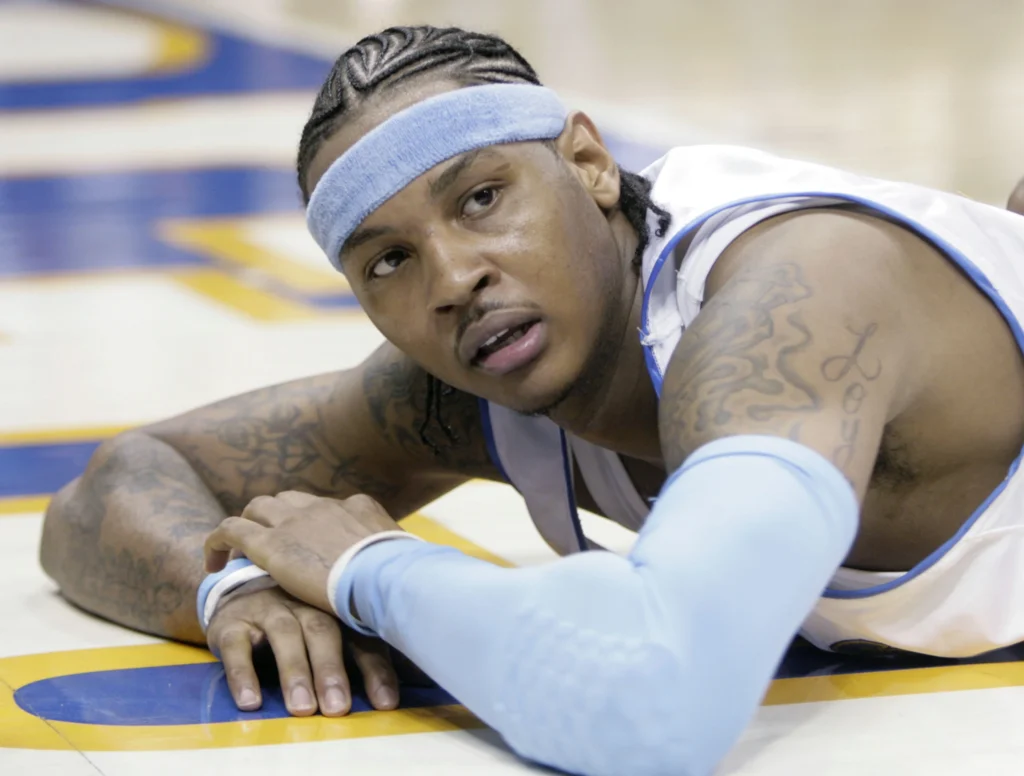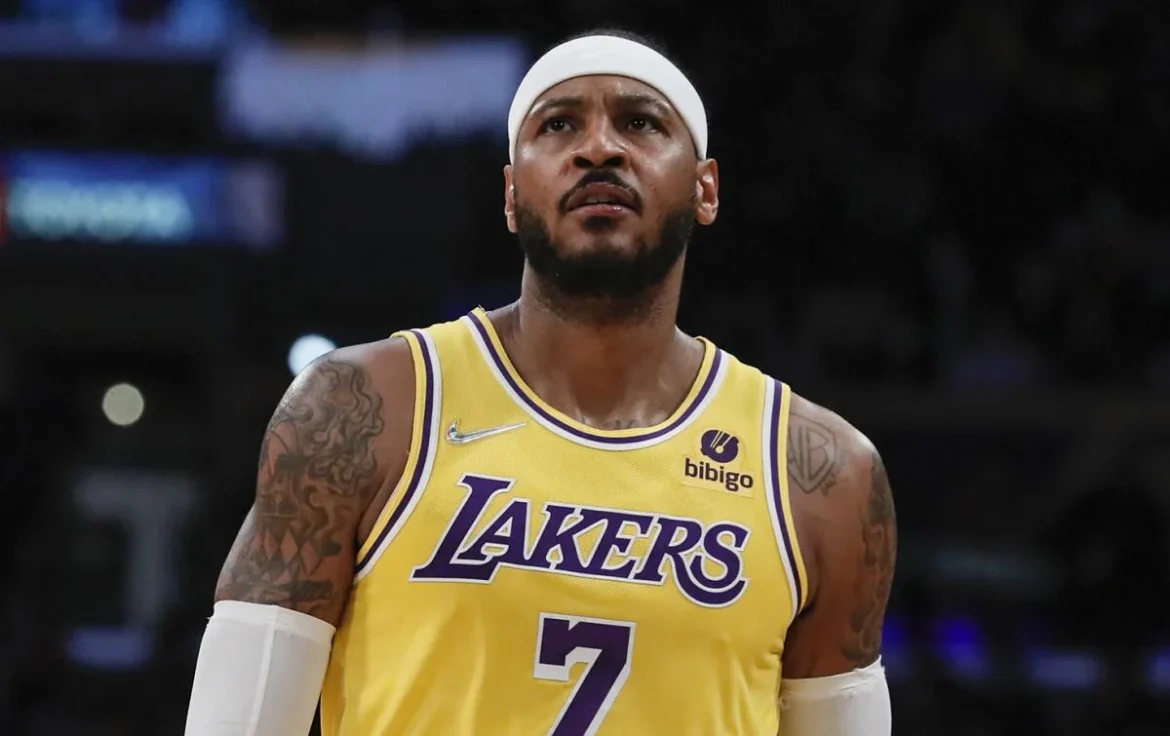Table of Contents
When Carmelo Anthony announced his retirement from the NBA after 19 seasons, it marked the end of an era for one of basketball’s most prolific scorers. This Carmelo Anthony retirement recap not only celebrates a legendary career but also offers valuable lessons about planning for life after your primary career ends—whether you’re a professional athlete or approaching your own retirement transition.
Anthony’s journey from a promising rookie to a seasoned veteran teaches us important lessons about financial planning, career transitions, and preparing for the next chapter. As someone who’s helped hundreds of clients navigate their own retirement planning, I’ve noticed striking parallels between athletic careers and traditional retirement preparation.
The Financial Lessons from Carmelo Anthony’s Career Arc
Throughout his 19-season career, Anthony earned over $260 million in salary alone, not including endorsements and business ventures. But here’s what many people don’t realize—professional athletes face the same retirement planning challenges as everyone else, just compressed into a much shorter timeframe.
Most NBA players retire in their early 30s, meaning they need their earnings to last 50+ years. Sound familiar? It’s the same challenge facing anyone planning for a 20-30 year retirement. The strategies that work for athletes—diversified investments, multiple income streams, and careful spending management—apply directly to traditional retirement planning.
Peak Earning Years and Income Replacement
Anthony’s highest-earning years came during his prime with the Denver Nuggets and New York Knicks. Similarly, most of us earn our highest salaries in the decade before retirement. The key lesson? Don’t wait until your peak earning years are over to start serious retirement planning.
- Maximize savings during your highest-earning years, just like Anthony likely did during his peak seasons
- Build multiple income streams beyond your primary career
- Consider how your spending needs might change in retirement
- Plan for a potentially longer retirement period than you initially expect
What I tell my clients is this: if you’re earning your highest salary now, treat some portion of it as “future you” money. LeBron James has mastered this approach, and it’s something every pre-retiree should consider.
Career Transitions: From Peak Performance to New Opportunities
This Carmelo Anthony retirement recap reveals something fascinating about career transitions. Anthony didn’t just wake up one day and decide to retire—he spent years preparing for this moment, exploring business ventures, and building relationships outside basketball.
I see the same pattern with successful retirees. They don’t just stop working one day and hope for the best. They plan their transition, often starting 5-10 years before their target retirement date.
“The most successful retirement transitions happen gradually, not overnight. You want to be moving toward something exciting, not just away from work.”
— Michael Thompson, Certified Financial Planner
Building Your Post-Career Identity
Anthony has already begun establishing himself as a businessman and mentor. For traditional retirees, this might mean volunteering, consulting, or pursuing hobbies that could become income sources. The point is having something meaningful to do beyond your primary career.
Here’s what I’ve learned from clients who thrive in retirement: they start building their “next chapter” while still working. They don’t wait until retirement to figure out what comes next.
Healthcare and Longevity Planning
Professional athletes understand the importance of maintaining their health—their careers depend on it. As we age toward retirement, healthcare becomes an increasingly critical component of our financial planning.
Anthony’s career longevity (19 seasons is impressive for any NBA player) likely came from smart health management and listening to medical professionals. Similarly, planning for healthcare costs in retirement requires the same proactive approach.
- Medicare doesn’t cover everything—plan for supplemental insurance
- Long-term care costs can devastate retirement savings if not planned for
- Health Savings Accounts (HSAs) offer triple tax advantages for retirement healthcare costs
- Staying healthy is one of the best financial investments you can make
The lesson from athletic careers like Anthony’s is clear: invest in your health early and consistently. Understanding Medicare options before you need them is just as important as understanding your investment portfolio.
Legacy and Estate Planning Considerations
When reviewing this Carmelo Anthony retirement recap, it’s worth noting that Anthony has always been involved in community work and philanthropy. He’s thinking beyond just his own financial security to the impact he wants to have on others.

This is where many retirees find their greatest satisfaction—in the legacy they leave and the difference they make. But legacy planning isn’t just for millionaire athletes. Whether you have $100,000 or $10 million saved for retirement, having a plan for your assets and your impact matters.
Estate Planning Basics for Pre-Retirees
You don’t need Anthony’s wealth to benefit from proper estate planning. Every pre-retiree should have these basics in place:
- Updated will and beneficiary designations on all accounts
- Durable power of attorney for financial decisions
- Healthcare directive and power of attorney
- Regular review of insurance coverage
I’ve seen too many families struggle because basic estate planning wasn’t in place. Don’t let your retirement planning excellence be undermined by neglecting these fundamentals.
The Psychology of Retirement Timing
One fascinating aspect of Anthony’s retirement decision is the timing. He could have played longer, but he chose to step away while still healthy and on his own terms. There’s a powerful lesson here about retirement timing that goes beyond just financial readiness.
Many of my clients struggle with this decision. They’re financially ready to retire but emotionally unprepared to leave their careers. Others want to retire but haven’t quite reached their financial goals. Like other athletes facing similar decisions, the key is having a clear picture of both your financial readiness and your emotional preparation.
Signs You’re Ready for Retirement
Financial readiness is just one piece of the puzzle. You’re likely ready for retirement when you can check most of these boxes:
- Your retirement savings can support your desired lifestyle
- You have a plan for health insurance coverage
- You’ve paid off major debts, especially your mortgage
- You have activities and interests that excite you beyond work
- You’ve emotionally prepared for the identity shift
The financial calculation is the easy part—we can run the numbers on your 401(k), Social Security, and other retirement income sources. The emotional preparation often takes longer and is just as important.
Learning from Athletic Career Management
This Carmelo Anthony retirement recap highlights another crucial lesson: the importance of having a good team around you. Throughout his career, Anthony worked with agents, financial advisors, trainers, and coaches. He didn’t try to manage everything alone.
Yet I’m constantly amazed by how many people approaching retirement try to handle everything themselves. You wouldn’t expect to perform at an elite athletic level without professional guidance—why would retirement planning be any different?
The most successful retirees I work with assemble their own “team”:
- Fee-only financial planner for comprehensive strategy
- CPA for tax planning and preparation
- Estate attorney for legal documents and planning
- Insurance agent for coverage review
You don’t need to hire all of these professionals immediately, but knowing when to get help is crucial. Other retiring athletes have shown us the value of professional guidance during major life transitions.
Frequently Asked Questions About Carmelo Anthony’s Retirement
When did Carmelo Anthony retire?
Carmelo Anthony officially announced his retirement from the NBA in May 2023, following the conclusion of the 2022-23 season with the Los Angeles Lakers. His retirement marked the end of a 19-season career that began when he was drafted third overall by the Denver Nuggets in 2003.
What are people saying about Carmelo’s retirement?
Fans, fellow players, and basketball analysts have praised Anthony’s career longevity and scoring ability, with many calling him one of the greatest pure scorers in NBA history. The basketball community has largely celebrated his contributions to the game and his professionalism throughout his career. Social media has been filled with tributes highlighting his Olympic success and memorable NBA moments.
Are La La and Carmelo still friends?
Yes, Carmelo Anthony and La La Anthony maintain a positive relationship as co-parents to their son Kiyan, despite their separation in 2017. They’ve both spoken publicly about prioritizing their family and maintaining respect for each other. Their focus remains on supporting their son’s basketball career and maintaining stability for their family.
Is Carmelo Anthony in the Hall of Fame for 2025?
Carmelo Anthony is not eligible for the Basketball Hall of Fame in 2025, as players must wait five years after retirement before becoming eligible. Since he retired in 2023, Anthony will first become eligible for Hall of Fame consideration in 2028. However, his credentials—including three Olympic gold medals and over 28,000 career points—make him a likely future inductee.
Will Carmelo be a hall of famer?
Most basketball analysts believe Carmelo Anthony will eventually be inducted into the Basketball Hall of Fame when he becomes eligible in 2028. His resume includes 10 All-Star selections, three Olympic gold medals, a scoring title, and ranking among the top 10 all-time NBA scorers. While some debate exists about his team success, his individual achievements and international play strengthen his Hall of Fame case significantly.
Applying These Lessons to Your Retirement Planning
As we wrap up this Carmelo Anthony retirement recap, the key takeaway isn’t about basketball—it’s about thoughtful preparation for life’s next chapter. Anthony’s retirement teaches us that successful transitions don’t happen by accident. They require planning, professional guidance, and the wisdom to step away while you still have options.
Whether you’re 45 or 65, the same principles apply to your retirement planning. Start preparing now for the life you want to live after your primary career ends. Build multiple income streams, maintain your health, surround yourself with good advisors, and have something meaningful to move toward in retirement.
The most important lesson from Anthony’s career? Don’t wait until you’re forced to make a decision. Take control of your retirement timeline by planning ahead, just like he did. Your future self will thank you for the preparation you do today.
Disclaimer: This article provides educational information about retirement planning strategies. It is not personalized financial advice. Your retirement situation is unique—please consult with qualified financial professionals before making significant financial decisions.

